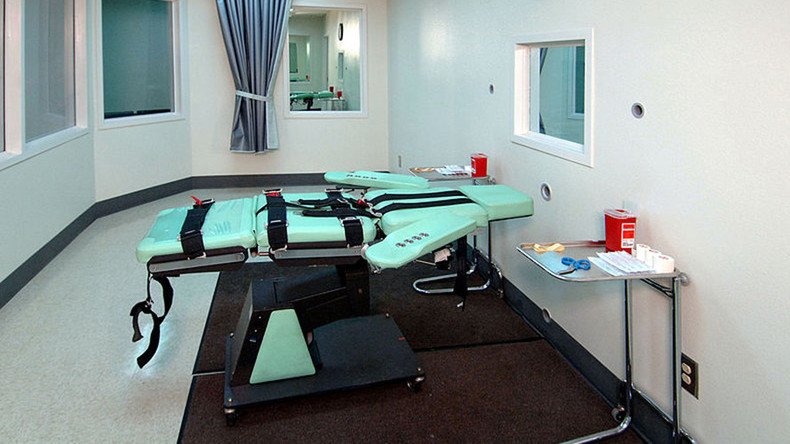Execution, Mississippi-style: Bill approving firing squad, gassing or electrocution passes

The future of Mississippi’s death penalty is uncertain. Lethal injections of drugs run the risk of soon being found unconstitutional, so a lawmaker is proposing the state opt for nitrogen gassing instead. Or firing squad. Or electrocution.
The future of Mississippi’s death penalty is uncertain. Lethal injections of drugs run the risk of soon being found unconstitutional, so a lawmaker is proposing the state opt for nitrogen gassing instead. Or firing squad. Or electrocution.
There’s no killing capital punishment in State Representative Andy Gipson’s (R-Braxton) House Bill 638.
His legislation would set up a list of replacement methods for execution should the state find any single one unconstitutional. In order, Gipson’s preference is lethal injection, followed by nitrogen hypoxia, firing squad and then Old Sparky, the electric chair.
HB 638 passed the Mississippi House of Representatives on Wednesday in a 75-43 vote.
House Judiciary B Chairman Andy Gipson, R-Braxton, said the bill has the support of Gov. Phil Bryant and Attorney General Jim Hood.
“I have a constituent whose daughter was raped and killed 25 years ago and the person is still awaiting execution,” Gipson said, according to the Clarion Ledger. “If we want to have the death penalty, this bill will give us options.”
The Hospitality State last executed someone in 2012. Since then, a federal lawsuit as well as motions brought to the state’s Supreme Court concerning fatal drug cocktails have led to a dearth in the supply of the lethal doses. Meanwhile, there are 47 inmates currently on death row.
Of the 33 states with the death penalty, only Oklahoma and Utah have a firing squad option. According to the Death Penalty Information Center, Mississippi used hanging from 1804 to 1940, then a mobile electric chair until 1952. From 1954 to 1989, the state used a gas chamber. In 1984, the legislature approved lethal injection.
#DylannRoof the 1st person to get the death penalty for federal hate crimes; decision unanimous
— RT America (@RT_America) January 10, 2017
More: https://t.co/Gx1gPBJ8EA@SimoneReportspic.twitter.com/1s3cRB5vPb














